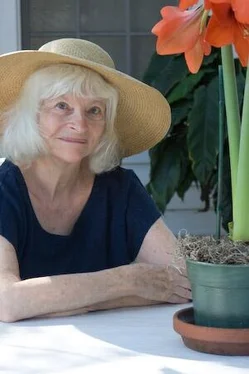“Your wife? Have you lost your wife?” Mr. Dodge held out his glass to the bar for more whisky.
“No,” Paul explained. “I was supposed to meet her here, and now I can’t find her.”
“Gee, that’s too bad,” Mrs. Dodge said, eating salted nuts. “I don’t know, maybe we saw her. What does she look like?”
“Well, she has long kind of light brown hair, done in a knot at the back. She’s very pretty. Beautiful, but not, you know, striking. Quite pale. She’s rather shy.”
“No,” said Mrs. Dodge, shaking her head. “I’m sorry.”
“No,” said Mr. Dodge. “Marge and I haven’t seen anyone like that. But there’s lots of pretty girls here,” he added helpfully.
What was he supposed to do now, Paul wondered. It was getting on for eleven, two A.M. by Boston time. Maybe he should go home, or at least call.
The party was growing louder and louder. He drifted into the hall, looking for a telephone, where a dark, striking girl came up to him. “Hey, I know you,” she said woozily. “You’re the college-boy type was talking to Glory at the rehearsal last week.” She told him, giggling, that Glory and Iz Einsam were celebrating their party in bed. “Come on in an’ say hello to them,” she urged Paul, pulling his arm. “They won’t mind. Ev’body’s going in. Wait, first we gotta get you ’nother drink. ... There. C’mon now.”
Against his better judgment, Paul allowed himself to be pulled down the hall and into a huge white room. There were two walls of mirrors, a lot of tropical plants, and a large white bed covered with fur and pillows. The man he had recognized before as Dr. Einsam was lying in bed, smoking.
“Brought you ’nother friend,” said the dark girl. “This is whatsis-name.”
“Paul Cattleman.”
“Well! How do you do.” Iz sat up, naked at least to the waist, and held out his hand. He gave Paul a penetrating look, but not a hostile one; so Glory hasn’t told him anything, thank Christ, Paul thought. He crossed the room and shook hands. “We’re going to get up pretty soon,” Iz said. “You’re having a good time?”
“Yes, thanks.” Embarrassed to be shaking hands with the man he had so recently cuckolded, Paul turned to go, and then turned back halfway across the room. “Only I want to ask you something. What’s happened to my wife?”
“Ya.” Iz paused, and narrowed his eyes. “Let’s talk about it later,” he said finally. “I would like to answer you, but I don’t think this is the time and place for a metaphysical discussion.”
Paul stared, then laughed nervously. “I didn’t mean it that way,” he said. “I mean I don’t know where my wife is. She left me a note to come here and meet her, but now I can’t find her.”
“Ah, I see. Well, I know she was here earlier. I’ll ask Glory. Hey, baby.” Instead of raising his voice, Iz lowered it, and laid his hand on the pillow beside him. “Do you know where Katherine went?”
“Huh?” From under the sheet, Glory lifted a tumble of pink curls, a blurred face. “Uh-uh. Somewhere round.” Her head fell again.
“Aw, I know where Kay is,” the girl who had brought him in said suddenly. “You wanna find Kay? She’s in the living-room. C’mon.”
Closing the bedroom door behind him, Paul followed her into the hall. “Hey, you’re Kay’s husband,” she said. “I wasn’t so loaded I woulda caught on sooner. I’m Ramona Moon, pleased to meetcha.”
“How do you do.” Paul and Mona shook hands. He realized that he had finished his third drink. Probably that was why everything seemed so odd.
“C’mon. ... This way. See, there she is, over by the piano.” Mona pointed across the living-room to where a girl sat on the piano bench, talking to two men: a pretty girl in tight yellow pants, with a smooth California tan and ash-blonde hair piled up onto her head like a mound of whipped cream; an obvious Los Angeles type; he remembered vaguely seeing her over there earlier in the evening.
“Oh, that’s not her,” Paul started to say, when the girl, laughing at some joke that had been made, turned her face full in his direction. He realized that it was Katherine.
He should have known then, of course. But the untangling of any long-standing illusion is a difficult matter, and over three weeks of miserable scenes, baffling explanations, and inconclusive arguments had intervened between Glory’s party and the smoggy morning when Paul climbed into the plane for Boston again.
Of it all he remembered now only a few things: for instance, the moment when Katherine, sorting clothes for the cleaners, had finally said that she didn’t want to go back to New England. Once the words were out, she repeated them many times, each time more clearly. Even her voice had changed: it was louder, with almost a California twang—not Katherine’s voice at all. Somehow his wife had disappeared; still, if he could only get her away from Los Angeles, if she would only come back East with him, he was sure, he said, that she would turn into herself again. “Yes, I know” Katherine replied. “That’s what I’m afraid of. ...”
Eating, dressing, undressing, carrying the groceries in and the cans and trash out, through all the small routines of domesticity, their argument discontinuously continued. “But you know you can’t stay here,” Paul remembered saying as he wiped a plate with a damp towel (not since the first months of marriage had they washed up so conjugally). “Why, the house is going to come down in a couple of months. You won’t have anywhere to live.” Katherine, her hands moving beneath the suds, sourly smiled. “You think I can’t even find an apartment by myself,” she stated. “No,” Paul replied, inaccurately. “I didn’t mean that. But for instance, suppose you did get an apartment; what’d you do with all your parents’ furniture, out in the garage?” Briefly, Katherine’s face altered: a shadow of her old, pale, complex inward look crossed it. Her wrists were still under the trickle of rinse water. “After all,” (Paul pushed his advantage), “those are pretty valuable antiques. You can’t just leave them in a garage.”
“Well, if you feel that way,” Katherine said slowly. Sweeping her arm across the sink, she pulled out of the soapy water a handful of knives, forks, and spoons; she splashed them under the faucet and set them bristling on end in the rack. “If you want them, I could ship them back East to you,” she offered. And he—who of course had nothing to put in the new apartment at Convers, and hoped that Katherine’s ancestral furniture would, eventually, draw her back across the country—agreed.
At night, in bed, they had long, vaguely intense conversations—lying far apart, in pajamas; Paul knew Katherine better than to try and change her mind by appealing to her body—he appealed instead to her emotions. At times, he thought, with some success; at others not. Once, across the chilly landscape of sheet, he asked what she thought would become of her, if she stayed in Los Angeles. Instead of answering, Katherine said to him calmly, pushing back her ash-blonde hair (it wasn’t dyed, she had insisted, only bleached by the sun), “You know what’s the matter with you, Paul. You’re always thinking of what happened before now or what might possibly happen some time later. You’re squeezed up between the past and the future; you’re not living.”
Finally, there was the time, perhaps worst of all, and late at night, when he had come out of the bathroom in a towel and exclaimed to Katherine, “I suppose what this all means is that you hate me; you can’t forgive me. Well,” he added bitterly, thinking of Ceci, of Glory, of all the others whose existence, it had turned out, she had suspected all along, so that finally she had—but he didn’t want to think of that—“Well, I guess maybe you have a good reason.”
Читать дальше












